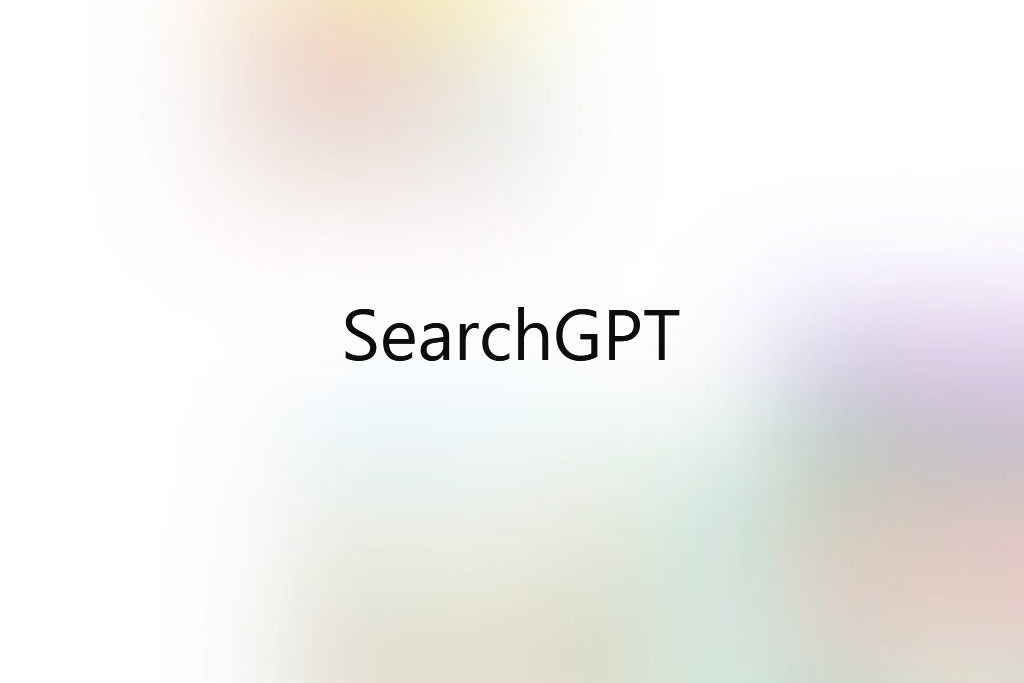San Francisco, CA – July 26, 2024 In a bold move that could reshape the digital landscape, OpenAI has unveiled SearchGPT, a revolutionary AI-powered search tool. This new entrant in the AI-powered search engine market promises to deliver a more personalized, conversational, and intuitive search experience, positioning itself as a formidable competitor to Google’s longstanding dominance giving the search giant a run for its money.
In a recent post on X, OpenAI said, “We’re testing SearchGPT, a temporary prototype of new AI search features that give you fast and timely answers with clear and relevant sources. We’re launching with a small group of users for feedback and plan to integrate the experience into ChatGPT.”
We’re testing SearchGPT, a temporary prototype of new AI search features that give you fast and timely answers with clear and relevant sources.
We’re launching with a small group of users for feedback and plan to integrate the experience into ChatGPT. https://t.co/dRRnxXVlGh pic.twitter.com/iQpADXmllH
— OpenAI (@OpenAI) July 25, 2024
Reimagining Search with AI
SearchGPT leverages the sophisticated capabilities of OpenAI’s ChatGPT to transform the way users interact with search engines. By understanding the context, nuances, and intent behind user queries, SearchGPT moves beyond the limitations of traditional keyword-based search algorithms. This AI-driven approach enables more accurate and relevant search results, providing users with a search experience that feels more like a conversation with a knowledgeable friend (SearchGPT) (SearchGPT – AI Powered Search).
Challenging the Status Quo
Google search, which currently commands the lion’s share of the market, has continually evolved its algorithms to enhance search accuracy and user satisfaction. However, SearchGPT introduces a paradigm shift that could challenge Google’s supremacy. By focusing on conversational AI, SearchGPT addresses a significant gap in the current search ecosystem—delivering context-aware responses that are tailored to individual users’ needs.
While Google has already started rolling out Google AI Overviews to its own search engine in recent months, OpenAI’s generative AI foundation models have taken the online world by storm over the last year. The company’s entry into search was only a matter of time. The generative AI training model will provide users with a new way to search using natural language in a conversational interface. The AI company says, “SearchGPT will quickly and directly respond to your questions with up-to-date information from the web while giving you clear links to relevant sources. You’ll be able to ask follow-up questions, like you would in a conversation with a person, with the shared context building with each query.”
Relationship with Microsoft
The relationship between Microsoft and OpenAI began in earnest in 2019 when Microsoft invested $1 billion in OpenAI. This investment was not merely financial; it represented a shared vision to democratize AI and ensure its development is safe and beneficial to humanity. The partnership allowed OpenAI to leverage Microsoft’s cloud computing infrastructure, Azure, to train and deploy its advanced AI models.
“Working with Microsoft gives us access to the massive scale of Azure, allowing us to push the boundaries of what our AI models can do,” said OpenAI CEO Sam Altman. “This partnership is crucial in our mission to create safe and powerful AI technologies.”
The integration of OpenAI’s technologies into Microsoft’s ecosystem has been seamless and impactful. Microsoft has incorporated OpenAI’s models into various products and services, enhancing their capabilities and providing users with advanced AI features. For instance:
- Azure OpenAI Service: This service allows businesses to integrate OpenAI’s large language model into their own applications, and AI chatbots making it easier to develop sophisticated AI solutions without needing extensive expertise in AI development.
- Microsoft Office Products: Features like the AI-powered writing assistant in Word and Excel’s intelligent data analysis capabilities are driven by OpenAI’s models, making everyday tasks more efficient and intuitive for users.
The Future of Search: AI at the Helm
The emergence of SearchGPT signals a new era in online search, where AI not only enhances but fundamentally changes how we access information. Here’s what the future holds:
- Conversational Interfaces: As AI-driven tools like SearchGPT become more prevalent, search interfaces will evolve to be more interactive and user-friendly, akin to having a dialogue rather than inputting isolated keywords.
- Deep Personalization: Search engines will increasingly leverage user data to provide highly personalized search results, anticipating user needs and preferences with unprecedented accuracy (SearchGPT).
- Integration with Ecosystems: Expect tighter integration of search functionalities with other AI-driven technologies, such as virtual assistants and smart home devices, creating a seamless digital ecosystem.
- Ethical AI Development: With AI’s growing role in search, ethical considerations around data privacy, transparency, and algorithmic bias will be paramount. Both OpenAI and Google will need to navigate these challenges to maintain user trust and regulatory compliance.
The Road Ahead
While Google remains the undisputed leader in search, the launch of SearchGPT introduces a fresh and innovative approach that could disrupt the status quo and upend the reliance on traditional search engines. By making search more conversational and personalized, SearchGPT not only challenges existing paradigms but also sets new expectations for what a search engine can achieve.
The tech world will be watching closely as SearchGPT rolls out to early users, assessing its impact on search market share, and its potential to redefine how we find and interact with information online. For now, one thing is clear: the future of search is conversational, intelligent, and more user-centric than ever before.
Additional information regarding OpenAI access to the SearchGPT prototype may be found here.
Related:


